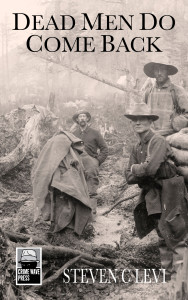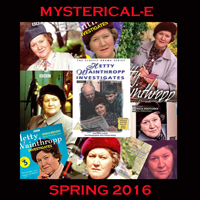Chapter 1
It all started with a cadaver.
In the middle of the night.
Sometime between the time of my last patrol along the Juneau waterfront and before the sun came up, two teamsters were pounding on my door at the Gastineau Mining Boarding House. In my dreams I was flat on my back on the hot sands of a beach in Cuba and about to get a cold beer from a near-naked seniorita when I was rudely pulled back to the reality of Alaska in the summer of 1910 in an ice-cold boardinghouse room just large enough for a bed and dresser. Talk about a rude transition; I hadn’t even gone for a swim yet!
But when a man is the United States Marshal there are no office hours. When duty calls he has to respond. But I could not respond half-naked so I hopped out of bed and did a little dance on the chilly floorboards as I pulled on my trousers. Then I answered the door.
“Yeah,” I said, trying to make it appear that I was wide awake.
“Got a floater, Marshal. Must have come in with the tide.”
Just what I needed at what? three or four in the morning? A floater. Why can’t people die during the day?!
I was wide awake by the time I got to the docks. It never gets jet black at night in Alaska during the summer but it was still dark by the definition of dark in the lower states. It was going to get a lot darker when I got down into the water next to the pier pilings. I could not wait for the sun to actually come up. If I did the tide would change and the body would get dragged out into the Gastineau Channel. The only time to get it out was now.
In the dark.
From the cold water.
A drunk standing at the end of the Juneau dock had spotted the body bobbing in a mat of cigar butts, chewing tobacco tins, and empty whisky bottles. I could only guess what he had been doing at the end of the dock – the drunk, not the corpse. The cadaver had come in with the tide and was floating face-up. The face was a pasty white, staring at the full moon. The reason the drunk had spotted the floater, he had told the harbor watch, was that it reminded him of his wife. The drunk had not said whether this was nostalgia or wishful thinking.
It didn’t matter to the harbor watch. He told a teamster to get the United States Marshal. The teamster got a buddy first because the teamster and his buddy wanted the contract to pull the body out of the Gastineau Channel. Double-time because it was after 5 p.m. and before 8 a.m.
Double men double time: that’s what the buddy system was all about.
Dealing with dead bodies is my job. I’m the United States Marshal for this neck of the woods. Anything that happens from Yakutat to the Canadian border and all the way south to Ketchikan, I’m John Law. Onshore, at sea, or in the belly of the mountains, I am the man with the badge who gets the call. Murder, robbery, salmon poaching, selling liquor to the Indians, or fishing without a permit, I’m the man with the badge.
There are actually three city policemen in Juneau but all they do is handle drunks. When a dead body shows up, they disappear. Whole or in pieces, bones, parts or greasy residue, it’s my job. This time retrieving the body was not going to be so bad: it was in one piece. It was in pretty good condition too. The waters of Southeast Alaska are frigid every time of year. They preserve the body.
At least I thought it was going to be easy when I first saw that the body. Yes, it was in one piece. I could see arms and legs and a head. That meant it had not been a mining accident. Probably someone who had gone overboard from a fishing smack.
Dead bodies aren’t that unusual around here. Juneau is a mining town and we run three shifts a day, 2,000 men into and out of the tunnels every eight hours. All kinds of things can happen deep in the bowels of the mountain. Things go boom. Tunnels flood. Ore carts flip. Mules go crazy. Men get drunk and make mistakes. But when any of those things happen the bodies usually come out in pieces. Sometimes a piece of the body is all I get. If I am lucky. Other times I don’t even get that. An explosion two years ago took away seven men. One minute they were cracking jokes and the next they were gone. So was the drift tunnel. All 127 feet of it.
What happened? No one knew for sure. Best guess was that methane just built up and one man lit a cigar. Maybe. All it took was a spark of some kind. Then they were gone. To this day their wives and girlfriends still believe those men are coming home. They firmly believe that one day a wall of a tunnel will come down and those seven men will just come walking out, like they were coming off shift. Just two years late. Or they are still down there, tapping on stones hoping that rescuers are on the way. When there are no bodies there is always hope that a miracle will occur. But if you’re a miner you know that miracles are very few and very, very far between.
There was only one way to get that body out of the Gastineau Channel.
I had to go in after it.
Sloshing around in the glacier-fed waters of the Gastineau Channel in darkness is not a pleasant task. Nothing like the warm ocean of Cuba in my dream, that’s for damn sure.
I had to go in boots and all. I needed the protection of my trousers and shirt from the barnacles on the pilings. The water was just as cold as I knew it was going to be and my body weight took me to the bottom of the five-foot breakwater. As I expected the rocks on the bottom were slick.
The teamsters and I had set up a dozen oil lanterns at the end of the dock to light the body. That was the best we could do but it wasn’t enough. I was still sloshing around in the dark.
Fortunately we were working with horses that were used to being on dock – in the light or dark – and the teamsters had no problem getting the back of the wagon bed to overhang the lip of the dock timbers. Then they set up the block-and-tackle flush to the edge of the dock. Took them an hour – all of it at double time – to brace the frame. Then I was lowered into the channel. That was the way I went down and that was the way the body was going to have to come up.
The teamsters didn’t really care how long I stayed in the water. They were on the clock with the United States government. Double-time. Even better, Uncle Sam’s checks were good as gold in Juneau. Anywhere in town. Anywhere in the United States, actually. A lot better than mining script the muckers got for tunnel work. That mining script wasn’t even as good as the paper it was printed on. It was only good in Juneau and could only be used at the company stores – all three of them. With sky high prices. Like I said, United States government purchase orders were as good as gold anywhere in the U. S. of A.
The good news was that it was low tide and the water was only about five feet deep. The bad news was the same. In 12 hours the water would be 20 feet deeper but that would not have helped me much. Had I waited I would have had to swim for the body. That would have made it harder because it’s tough to swim when you are being slammed against the pier pilings. In the shallows all I had to do was wade through the chest-high water. At least that was the plan. Until I discovered that the rocks just below the surface were slick with algae and moss and the mud had the consistency of quicksand.
After ten minutes of sloshing around in the frigid, shallow water I finally found a firm foothold on one of the slimy boulders around the pilings at the bottom of the pier. Only then could I reach over and drag the body toward me through the flotsam.
The corpse was male, old, heavy and very dead. Even in the dim light I could see the bullet hole that had made a cavern of the man’s left eye socket. The instant I grabbed his sleeve I knew there was not going to be anything usual about this murder.
The body was frozen solid.
BIO
Steven C. Levi is a sixty-something freelance historian and commercial writer who lives in Anchorage, Alaska, his home for past 40 years. Levi specializes in history and creative thinking. His historical specialty is the Alaska Gold rush. His Alaska Gold Rush murder mystery DEAD MEN DO COME BACK was just released by Crime Wave Press.




